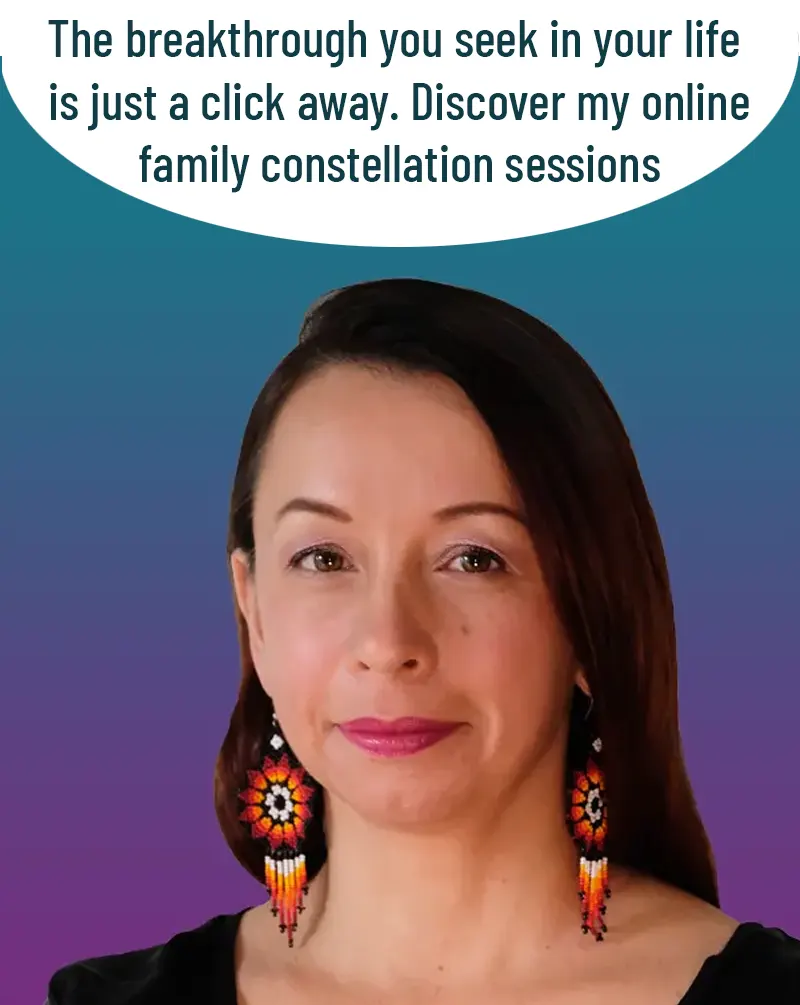Transform Your Life: Holistic Approaches to Personal Growth and Well-being
Published March 8, 2023

How to change personal aspects that bother us from the perspective of holistic healing
Changing personal aspects that bother us is not an easy task, but it is possible with conscious and consistent effort. From the perspective of holistic psychology and holistic healing, here are some steps that can help in this process:
Recognize and accept the aspect we want to change: The first step in changing something is to recognize that it exists and accept it. From the holistic perspective, this involves understanding that any personal aspect that bothers us has an underlying cause that may be related to our mind, body or spirit.
Recognize and accept the aspect we want to change: Acknowledging and accepting the existence of the aspect we wish to change is the crucial first step. Holistically, this entails understanding that underlying causes—whether related to mind, body, or spirit—contribute to these challenges.
Identify the underlying cause: Once we have identified the aspect we want to change, it is important to try to understand why it exists in the first place. From the holistic perspective, this may involve identifying patterns of behavior or thinking, or exploring past experiences that have contributed to its development. In addition, it is important to consider the physical and energetic aspects of the body, such as blockages in the chakras or the presence of toxins.
Set realistic goals: It is important to set clear and achievable goals for the change we want to bring about. From the holistic perspective, these goals should consider not only the mental and emotional aspects, but also the physical and energetic aspects of the body. In addition, it is important that these goals are consistent with our life purpose and personal values.
Develop an action plan: Once we have set realistic goals, it is important to develop an action plan to help us achieve them. From a holistic perspective, this action plan can include practices such as meditation, physical exercise, healthy eating, use of alternative therapies and connection with nature.
Practice self-discipline: Change does not happen overnight, and it can be difficult to stay focused and motivated over time. From the holistic perspective, practicing self-discipline involves not only willpower, but also connection to our life purpose and personal values. In addition, it is important to be compassionate and patient with ourselves in the process of change.
Seek support: Finally, it can be helpful to seek support from friends, family or a therapist if we are struggling to change personal aspects that bother us. From the holistic perspective, support can be a valuable source of motivation and encouragement, and can help us stay committed and focused on our change goals.
What is the meaning of your life?
The search for meaning in life is a very personal and profound question that may require exploration of different aspects of the human experience, including holistic psychology and holistic healing. Holistic psychology focuses on the whole person's well-being, not only in their mind, but also in their body, spirit and environment. Holistic healing, on the other hand, considers the person as a whole being, encompassing emotional, physical, mental and spiritual aspects, and seeks to integrate them to achieve healing.
In this sense, if you are looking for the meaning of your life, it is important that you take the time to reflect and explore your being in a holistic way, encompassing all the dimensions that make up your existence. By doing so, you will be able to identify the behavioral and thought patterns that limit you and the emotional blocks that prevent you from moving forward in your search. In addition, seeking professional help from a holistic healer or therapist can be very helpful in exploring and overcoming these blocks.
In summary, to find meaning in your life it is important that you focus on the holistic well-being of your being, exploring your psychology as well as your spirituality and emotions. If you feel blocked in your search, do not hesitate to seek professional help from a holistic healer or therapist who can guide you in the process.
For example, imagine that you have been unable to answer the question "What is the meaning of my life?" for some time. To find an answer you could vary the question and, for example, ask:
What has it been since I have been unable to find meaning in my life?
Is the meaning of life being searched for?
Why do I want to find meaning in my life?
How could I give a real meaning to my life?
What would my life be like if it already had meaning?
What would I need to find meaning in my life? ...
there are endless possibilities, let your mind and your heart find the one you like the most and the one you can best explore within yourself.
Or, if, for example, what happens to you is that you are in a depression because of something that has happened to you and your unanswered question is: "why has this happened to me?", I suggest you look for alternative questions such as: why has this happened to me?" or "how could I see from another perspective what has happened to me?" or "is what has happened to me of any use?" or "when will I be able to overcome it?" or "how much effort will I have to use to get out of this situation?" or "what tools do I need to get out of this situation?"... or others that come to your mind. Don't be satisfied with the first answer you get. Follow the thread from there, keep asking. You will get to the bottom of the question.
Remember that if you change the question, the answer will appear more clearly within you, it is a matter of silencing your mind and listening with your heart.
The importance of knowing how to renounce
Knowing how to give up things in life is an important skill that allows us to free ourselves from what no longer serves us and move on to new opportunities and experiences. Yes, when we are working on giving VALUE AND MEANING we must give up something or someone. Here are some keys:
Freeing up space and energy: By giving up things that no longer serve us, we free up physical, mental and emotional space in our lives. This allows us to focus on what really matters and on the things that make us happy and give us energy.
Learning and growing: Giving something up can be difficult, but it also gives us the opportunity to learn and grow. By letting go of something, we can reflect on what we have learned from that experience and apply that knowledge to new situations.
Making more informed decisions: Sometimes, giving something up can be the best option for moving forward in life. By taking the time to evaluate what we want and what we need, we can make more informed and constructive decisions.
Strengthening our resilience: Giving something up can be emotionally challenging, but it also helps us strengthen our resilience and develop the ability to bounce back from difficulties.
In short, knowing how to let go is important because it helps us free up space and energy, learn and grow, make more informed decisions, and strengthen our resilience. Sometimes letting go of something can be painful or difficult, but ultimately, it can be an important step in moving forward in life and finding happiness and success.
How do you stop sabotaging yourself?
Have you ever set yourself a goal, for example to lose weight; in the first week you set your mind to it, but in the middle of the week it turns out that... "the gym is making me tired". "The gym is making me tired", you eat three chocolate bars and send everything away. You promise yourself over and over again to do something that you never do; you have to finish your thesis, your degree, prepare it but every time you are going to start you start doing something else, organizing, going out with friends, cleaning.
Have you ever asked yourself why you do it, why you continue to act in the same way even though you know that you are not getting the results. If you have seen yourself in a situation like this, I invite you to read on.
**What is Self-Sabotage?
Self-sabotage is part of those obstructions or what we stop doing because for our unconscious it has a very high cost. Projects, decisions, ideas that we want to achieve but in one way or another we prevent it.
From my experience, there are four main elements that influence self-sabotage.
- I do not realize that I am sabotaging myself, there are many people who do not realize it, because they go on automatic. I'm not judging it but it does happen!
- I realize it but I don't want to see it, I don't want to change it, I don't want to transform it, I know I do it again and again and again, but I pass it by, better not to see it.
- It's in my beliefs, that baggage of limiting beliefs and thoughts that I may have since I was a child "I'm the worst, I don't deserve, I'm not good for this". All those messages that we have received and that are there; of course, all of them transformable, manageable and that we can reprogram.
- Many times what sabotages me is not only related to me, but also to the family loyalty network that I maintain. I do not want to justify self-sabotage; but when we work from a holistic and systemic point of view, it is important to identify which are those family alliances and loyalties that may be causing you to sabotage yourself.
You want to know more, something has resonated in you; I invite you to listen to the audio I have created on the subject.
Why do we sabotage ourselves, boycott ourselves?
Fear of being happy, of being hurt, of not getting it right, of change, of what success brings, maybe fear of consequences, fear of what they will say, of losing something or someone; maybe it's a subtle way of punishing ourselves, covenants promises we have made out of fear.
**Maybe because you don't know it, you haven't realized it, because you have been avoiding it, because you don't want to do it, because you have been avoiding doing things. Many times we do not act because we do not know and when we do not know we enter into the omission of action.
Because of laziness, laziness... I don't feel like it, I don't want to, what a laziness to do this, what a laziness to finish my career, what a laziness to be an adult.
**I punish myself because I don't deserve it. And if you have entered life with the feeling of not deserving, even if they put the cake of happiness in front of you, even if they tell you this little piece is for you because you deserve it, because life is giving it to you, but you have the essence of I do not deserve; you are going to leave the cake. There can also be the punishment of I don't deserve because the others are bad; how am I going to get ahead if the rest of my family, of my environment, can't... if my siblings are not doing well, because I am; my family is not doing well because I am Family loyalties.
From a systemic perspective, the work is to identify those phrases in you, those beliefs, loyalties that prevent you from doing what you have to do with all your potentials. I am one of those who believe that in this life we have been given precious gifts that many times we don't know or that we know but we don't let shine for fear. We are a diamond in the rough that we need to polish.
As we begin in this world of self sabotage exploration, I propose to start with the following question:
What do you do with all your potentialities?
Do you silence them, keep them, shut them up, hide them? And if you hide them, why do you hide them? and so start pulling the thread to heal, to stop blaming others, to stop doing the minimum.
And in this I invite you to ask yourself: What are you telling yourself in life to sabotage yourself so much, what is the movie you tell yourself every day, are you living below your possibilities?
I am not going to give you here a recipe to overcome self-sabotage, because I believe this is a work that implies diving into the personal and family history to reposition the system and also reposition the transgenerational, a work that implies much more than a reading, an audio. But I am sure that this content will help you and stir you inside to look and know where to go next.



